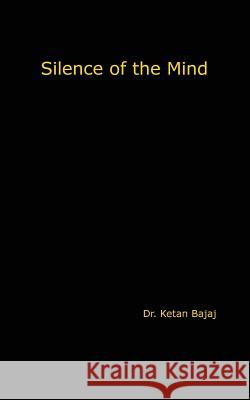Silence of the Mind » książka
Silence of the Mind
ISBN-13: 9788184659238 / Angielski / Miękka / 2012 / 160 str.
Our mind talks to itself. It does so silently, such that only our mind can hear this inner voice and not anybody outside. Our mind ponders over memories, repeating past dialogues. Our mind plans and rehearses inner dialogues before we take decisions and actions. There is a continuous inner speech going on within the theatrical stage of our mind...but sometimes, this 'inner speech' of the mind becomes a cause of stress for the mind; and one doesn't know how to stop it, how to escape it... I discuss here the phenomenon of mind's 'inner speech' and explain what it is and how it is generated in our Mind, with glimpses to underlying brain mechanisms. Inner speech is influenced by the past, the present and the future. The past is represented as memories within the brain, the future represented as stored desires and the present as sensory stimulus inputs to the brain. Memories, desires and senses together influence inner speech and on top of these emotions modulate its nature, intensity and quality. Troublesome thoughts in our Mind become stressful, uncontrollable and sometimes inescapable. This gives rise to a need to control Mind's inner speech. I discuss how mind's inner speech can be understood and controlled so that a sense of peace and joy prevails over the mind. I call this as achieving Yoga, that is, "Silence of the Mind." I discuss how knowledge, action, attention and devotion can control the Mind. In the Bhagwad Gita, the holy book of the Hindus, Lord Krishna gives a discourse on Yoga. The Bhagwad Gita talks about Gyana Yoga, Karma Yoga, Dhyana Yoga and Bhakti Yoga. The Lord had meant Yoga to be a way of controlling the mind; but Yoga has become a highly misinterpreted word these days. It has been narrowed down to just a set of asana i.e. physical postures and exercises. Yoga is in fact training the Mind, controlling the Inner Voice. I try here to bring back the lost meaning of Yoga and emphasize here that Yoga means Silence of the Mind. Gyana, Karma, Dhyana and Bhakti Yoga are in fact ways to achieve Silence of the Mind, respectively through knowledge, action, attention and devotion.











